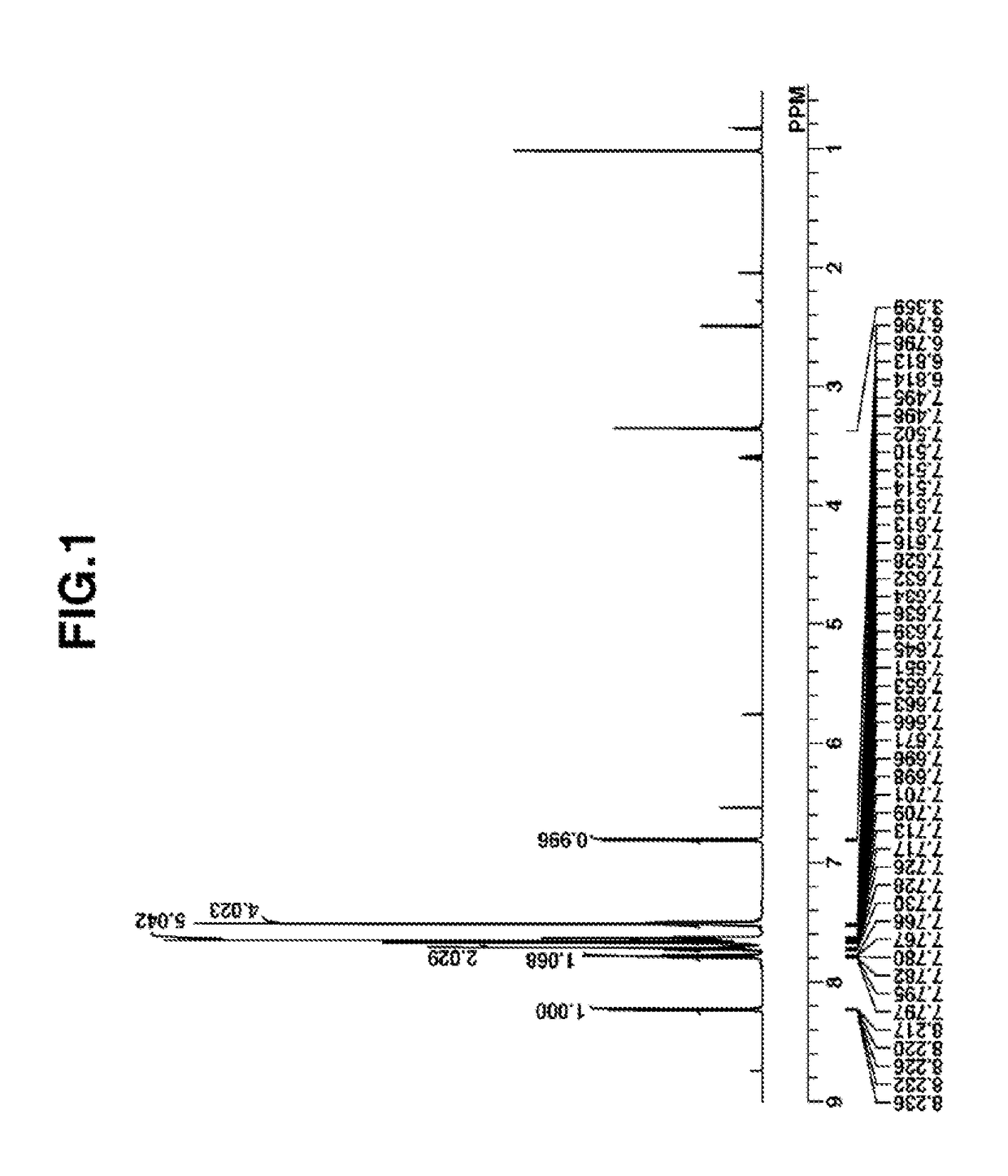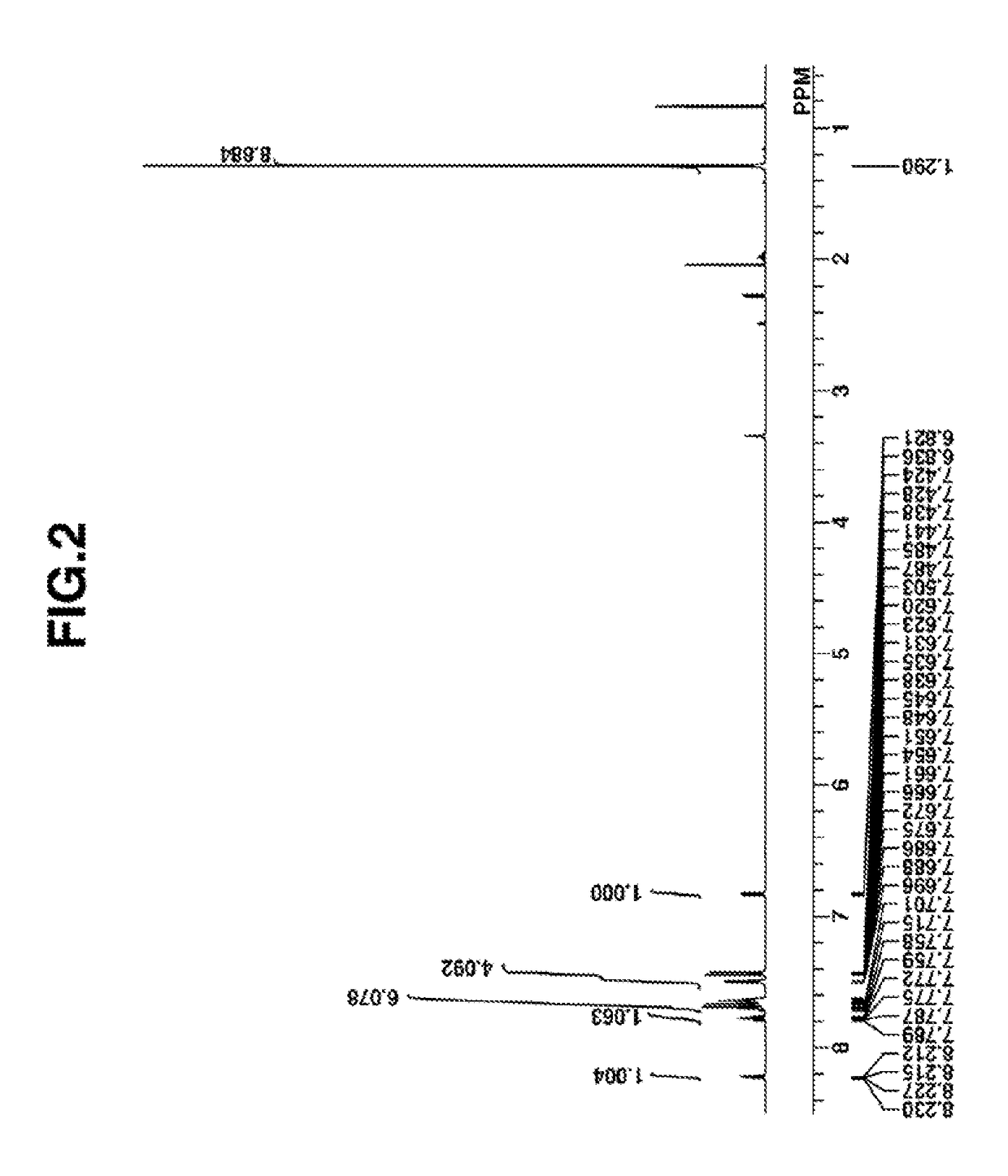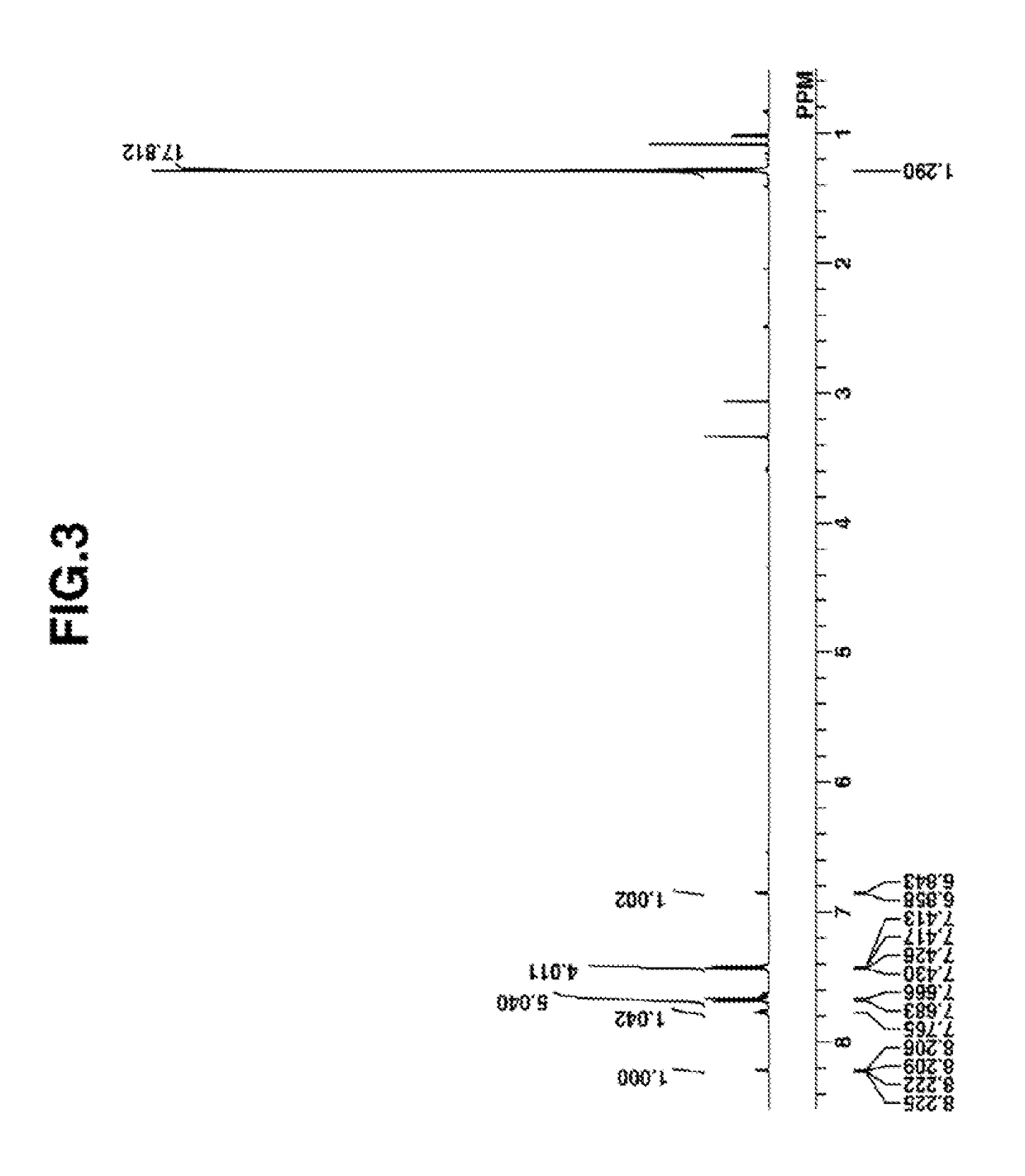Negative resist composition and resist pattern forming process
a technology of composition and resist, applied in the field of negative resist composition and a process for forming resist patterns, can solve the problems of acid that has a significant impact on resolution and remains, and achieve the effects of minimal ler, minimal line width variation, and high resolution
- Summary
- Abstract
- Description
- Claims
- Application Information
AI Technical Summary
Benefits of technology
Problems solved by technology
Method used
Image
Examples
synthesis example 1
ediates
Synthesis Example 1-1: Synthesis of 2-phenylthiobenzoic acid (Intermediate A)
[0180]
[0181]A mixture of 3 g of thiosalicylic acid, 6 g of potassium carbonate, 5 g of iodobenzene, 100 mg of copper iodide, and 10 g of N-methylpyrrolidone was stirred at 100° C. for 10 hours. The reaction solution was cooled to room temperature, to which 30 g of 10 wt % hydrochloric acid was added to quench the reaction. Ethyl acetate, 50 g. was added to the solution, followed by water washing, separation, and vacuum concentration. Hexane was added to the concentrate for recrystallization. The resulting crystal was filtered and dried in vacuum at elevated temperature, obtaining the desired compound, Intermediate A (amount 4 g, yield 90%).
synthesis example 1-2
-phenylthiobenzoate (Intermediate B)
[0182]
[0183]Intermediate A, 4 g, was dissolved in 20 g of methanol, to which 80 mg of conc. sulfuric acid was added. The solution was stirred under reflux for 50 hours. The solution was cooled to room temperature and concentrated under reduced pressure. Toluene was added to the concentrate, followed by water washing, separation, and vacuum concentration again. The desired compound, Intermediate B was obtained as oily matter (amount 4 g, yield 92%).
synthesis example 1-3
xycarbonylphenyl)diphenylsulfonium methylsulfate (Intermediate C)
[0184]
[0185]A mixture of 4 g of Intermediate B, 6 g of diphenyliodonium methylsulfate, 140 mg of copper(II) benzoate, and 20 g of anisole was stirred at 80° C. for 3 hours. The solution was cooled to room temperature, 30 g of diisopropyl ether was added thereto, and the supernatant was removed. The residue was purified by column chromatography, and diisopropyl ether was added thereto for crystallization. The crystal was filtered and dried in vacuum at elevated temperature, obtaining the desired compound, Intermediate C in powder form (amount 2 g, yield 32%).
PUM
| Property | Measurement | Unit |
|---|---|---|
| feature size | aaaaa | aaaaa |
| wavelength | aaaaa | aaaaa |
| wavelength | aaaaa | aaaaa |
Abstract
Description
Claims
Application Information
 Login to View More
Login to View More - R&D
- Intellectual Property
- Life Sciences
- Materials
- Tech Scout
- Unparalleled Data Quality
- Higher Quality Content
- 60% Fewer Hallucinations
Browse by: Latest US Patents, China's latest patents, Technical Efficacy Thesaurus, Application Domain, Technology Topic, Popular Technical Reports.
© 2025 PatSnap. All rights reserved.Legal|Privacy policy|Modern Slavery Act Transparency Statement|Sitemap|About US| Contact US: help@patsnap.com



